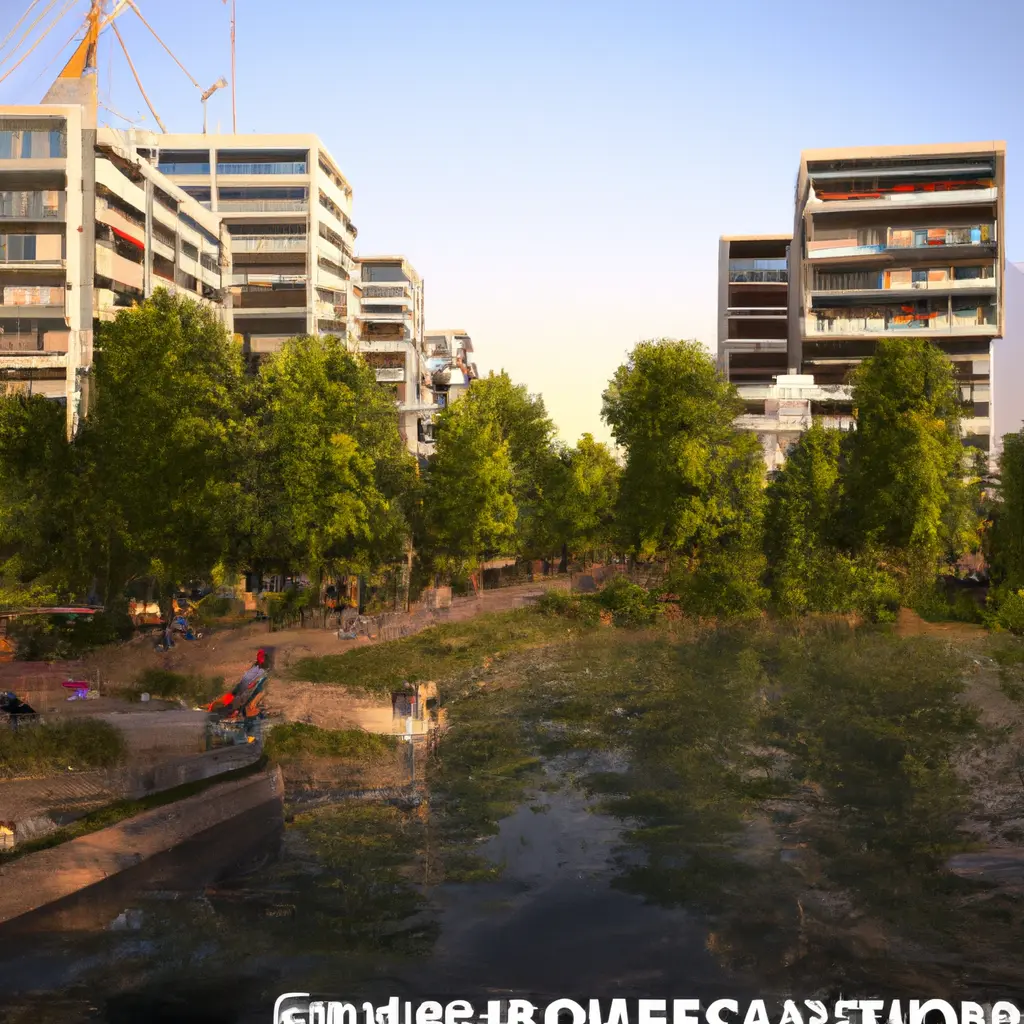Paris Olympics - fears of gentrification in a poor neighborhood

The 52-hectare (128-acre) site is bustling with trucks, with a constant clatter in the air. It's the latest phase of construction work in the village for the 2024 Summer Olympics, due to be completed by the end of this year. And these gray, white and red buildings could become more than just a temporary home for the 14,500 Olympic and 6,000 Paralympic athletes. Local authorities hope the village will also eventually improve the department of Saint-Saint-Denis, a suburb of Paris that is France's poorest neighborhood.
But some residents are most concerned about the negative impact of the project. "We worked with 40 architects from around the world to create a 21st-century city," says Marion Le Paul, deputy general''after buying the buildings from public bodies. After the games, French companies will rebuild and then sell or lease 2,800 apartments and office space for 6,000 employees.
Mathieu Anotin, mayor of St. Denis, considers the new village in the city and other Olympic infrastructure, such as a new swimming pool nearby, "great news." "This project will greatly increase the value of this area, just as it will bring new roads, bridges, anti-noise walls and power lines," he told DW.
But Hamid Oidir has his doubts. The 50-year-old man is a member of the so-called St. Denis Olympic Vigilance Committee, which includes local residents. "We were very happy when we found out the games would be held here, but now we''feel like we're under a catoca,' he told DW, standing in front of one of the new buildings. The father of two young children worries that the air quality in the neighborhood during and after the games could deteriorate further. "We have taken measurements for five months and found that air pollution levels are consistently above safe limits for human health. These levels are likely to get worse as the number of residents and traffic increases," explained Oidir.
He doubts that the four new planned subway lines - only one will be finished in time for the games - will significantly reduce air pollution. "People here will still commute to work in their cars," he said. He also refuted the argument that the additional apartments built will help solve''the housing problem that Saint-Denis, like many other French departments, is facing. "The new apartments will only increase the number of residents, as St. Denis residents cannot afford to buy apartments at €7,000 per square meter. "
But real estate company Icade says that's not entirely true. The company is building and selling 643 apartments in the village, 200 of which have just gone on sale to private buyers. "We've gotten inquiries from interested buyers from Saint-Saint-Denis and other places like Paris," Icade project manager Florence Chaïd-Nouraï told DW.
13 May 2025
14 May 2025
14 May 2025
14 May 2025




Economist Andrew Zimbalist, professor of economics at''should consider the so-called costs of projects. ' They have to ask themselves whether public money can be used in a more socially compatible way." For Oidir, the answer to that question is yes. "We really need a pharmacy and a community health center in the neighborhood," he stresses.
But Mayor Anoten says gambling can't solve all of the neighborhood's problems. And he welcomes some gentrification in St. Denis. "Gaming will attract a more diverse population," he said. "We have 52% public sector housing right now and we need regular apartments to attract other social groups. "
With the local economic impact something unclear, can we at least be sure the games will have''beneficial effect on the economy as a whole? Not necessarily, says economist Zimbalist. "The Olympics typically cost between $20 billion and $40 billion but generate only about $5 billion in revenue. "
Otherwise, Vladimir Andreff, professor of economics emeritus at the University of Paris 1 and president of the Observatory of Sports Economics at the French Ministry of Sport, is more optimistic. "Indeed, often organizing cities underestimate the costs of hosting the Olympic Games, also when bidding to host the games," he told DW, adding that Zimbalist: The costs of the Winter Olympics in the Russian city of Sochi amounted to $50 billion, rather than the originally estimated $6 billion. "In Paris, however, the additional costs were moderate. Accounts''The French Chamber estimates that spending has now increased by only 30% to 8 billion euros'.
In the end, as Luc Arrondel, professor of economics at the Paris School of Economics, emphasizes, the final results will only be known in the future, and it's complicated. "We have to take into account many indirect effects, such as the fact that the games can improve the image of Saint-Saint-Denis in the eyes of international investors," he told DW. In his opinion, the games are likely to have a positive impact. "Surveys during the 2012 Summer Olympics in London showed that Londoners felt much happier during the games, especially, of course, when their team won medals. "
Comment
Popular Offers

Subscribe to the newsletter from Hatamatata.com!
Subscribe to the newsletter from Hatamatata.com!
I agree to the processing of personal data and confidentiality rules of Hatamatata










